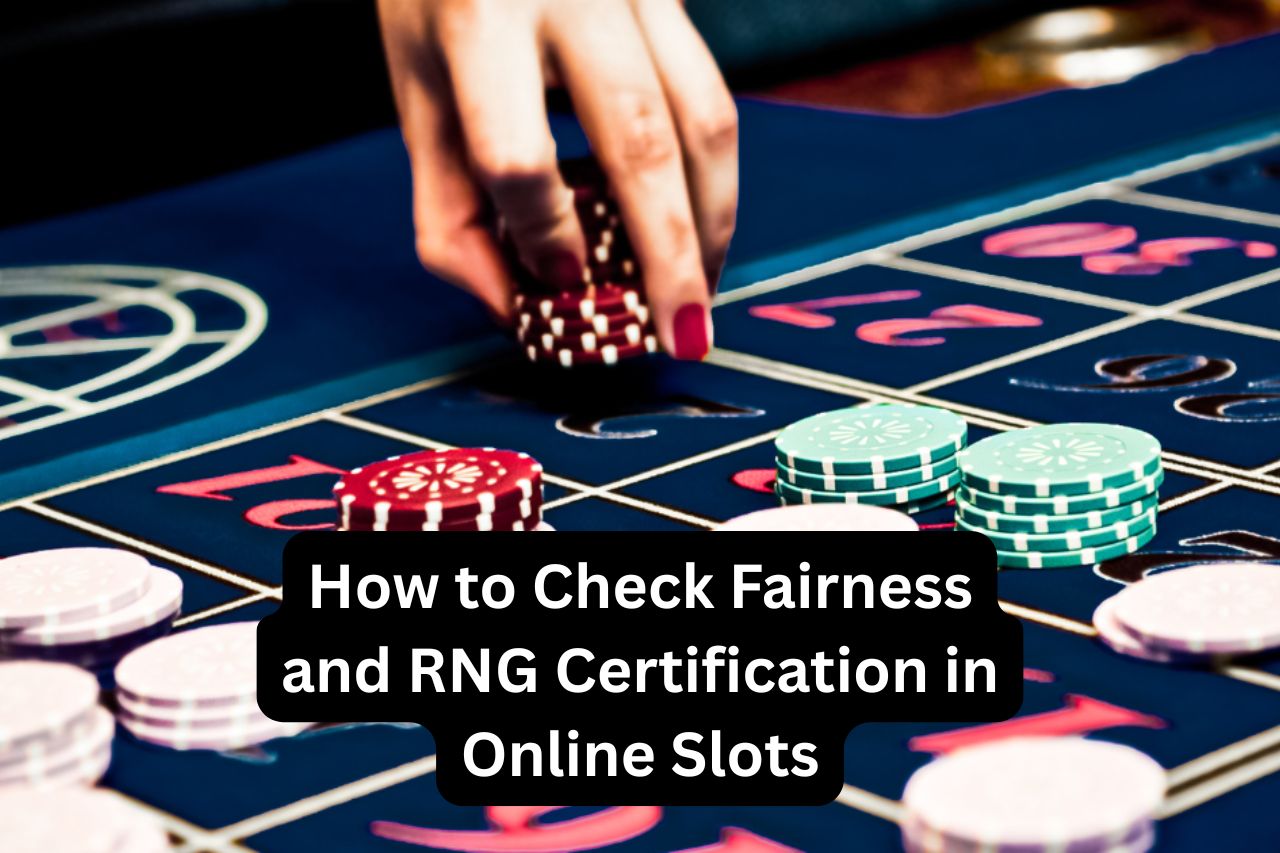How to Check Fairness and RNG Certification in Online Slots
When you play online slots, the last thing you want is to feel like the game is rigged. That’s why it’s important to understand how fairness works and what Random Number Generator (RNG) certification means. This blog post will guide you in simple words on how to check if the slots you’re playing are truly fair.
What Does “Fair” Mean in Online Slots?
Fairness in online slots means that every player has an equal chance of winning or losing. The outcomes should not be predictable or manipulated. The games should not favor the casino unfairly over time. In a fair game, luck decides the result — not hidden software tricks.
What Is an RNG (Random Number Generator)?
The RNG is a program or algorithm used in online slots to randomly produce numbers. These numbers decide the outcome of each spin. For example, if you hit a spin button, the RNG picks a number, and that number matches a particular reel combination.
A certified RNG means the numbers it produces are truly random and can’t be predicted or manipulated. This is what makes a slot fair.
Why Is RNG Certification Important?
Without a properly certified RNG, you can’t trust the game. A casino could easily rig outcomes to reduce player wins. RNG certification is proof that an independent agency has tested the software and confirmed it behaves fairly. It ensures players are not being cheated.
Who Certifies RNG Fairness?
There are several trusted third-party agencies that test and certify RNGs for online casinos. Some of the top names include:
- eCOGRA (eCommerce Online Gaming Regulation and Assurance)
- iTech Labs
- GLI (Gaming Laboratories International)
- TST (Technical Systems Testing)
These organizations review slot machines’ software and issue certificates only if the RNG passes strict fairness tests.
How to Check for RNG Certification in Slots
You don’t need to be a tech expert to check if a slot game or online casino is using certified RNGs. Here are some easy steps you can follow:
1. Visit the Casino’s Website
Most legitimate online casinos list their certifications in the footer section of their homepage. Look for logos like eCOGRA, iTech Labs, or GLI.
Clicking on these logos often leads to a verification page showing the casino’s license and RNG testing status.
2. Read the “Fair Gaming” or “RNG” Section
Reputable casinos have a page dedicated to explaining their fairness policy. This page should mention:
- Which agency certified their RNG
- When it was last tested
- Whether the results are published
You’ll find this page in the footer or under sections like “About Us” or “Security.”
3. Look for a Valid Gaming License
Every trustworthy online casino should be licensed by a recognized authority. Some of the major gaming regulators include:
- UK Gambling Commission
- Malta Gaming Authority (MGA)
- Curacao eGaming
- Gibraltar Regulatory Authority
These regulators require online casinos to use RNG-certified games. So, if a casino has a valid license from any of these, it’s likely following fair play standards.
4. Research the Game Provider
If the slot is made by a well-known provider like NetEnt, Microgaming, Pragmatic Play, or Play’n GO, it is almost always RNG certified. These big names work only with licensed casinos and use certified technology.
Check the game’s info or help section—most providers include details on RTP (Return to Player) and RNG usage here.
5. Read Player Reviews and Casino Forums
Players often share their experiences in online casino forums and review sites. If a game is suspected of being unfair, someone has likely already posted about it. These insights help you avoid shady operators.
Websites like AskGamblers or Trustpilot also give a clear picture of a casino’s reputation when it comes to fairness.
6. Contact Customer Support
Still unsure? Reach out to the casino’s customer service. Ask them directly:
- Who certified your RNG?
- When was it last tested?
- Can I view the certificate?
A reliable casino will answer confidently and provide the proof.
What If the Casino Doesn’t Mention RNG Certification?
That’s a red flag. If the casino doesn’t show or mention any fairness certifications, it might not be regulated properly. Avoid playing there. Stick with casinos that are transparent and show all the needed info.
Signs of a Trustworthy Online Casino
Here’s a quick checklist to help you spot a safe and fair casino:
- Clearly displays RNG certifications
- Licensed by a known gambling authority
- Offers games from top providers
- Has positive player reviews
- Transparent about RTP and fairness
- Offers secure payment options
If these boxes are ticked, it’s a green signal.
Can You Trust Every Certified Casino?
Even with certifications, it’s important to be cautious. Some scam casinos fake certificates or use expired ones. That’s why it’s always good to click on the certification badge to verify its validity. Trusted sites will link directly to the certifier’s website.
Final Tips Before You Spin
- Always read the game’s info section. It often tells you the RTP and whether it uses an RNG.
- Play at casinos with well-known software providers.
- Check for updated certification dates—not just any logo.
Conclusion
Fairness is a big deal in online slot gaming. You don’t want to waste your time or money on a rigged machine. By understanding RNG and how to verify certification, you can enjoy your games with confidence. Always play at licensed and certified casinos. An

Leave a Reply